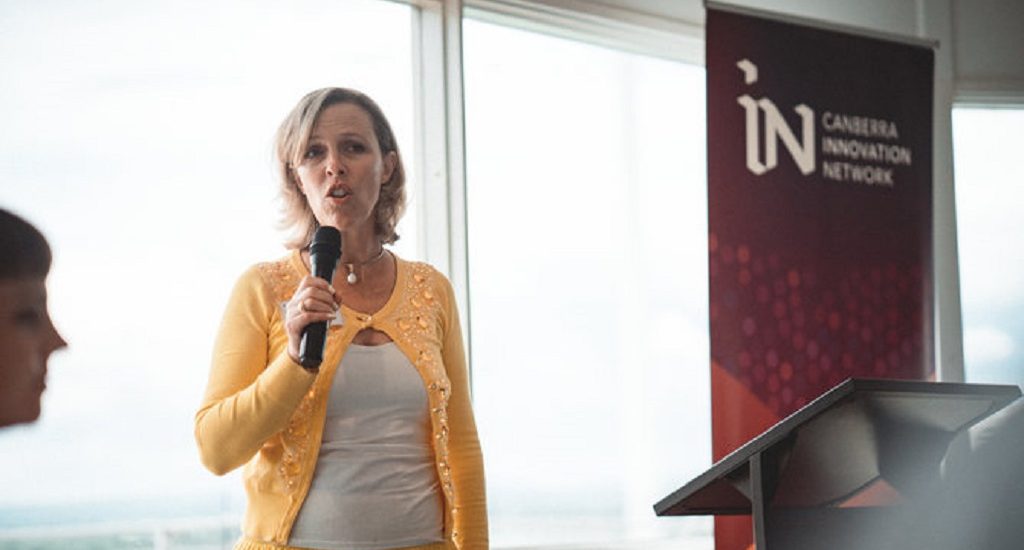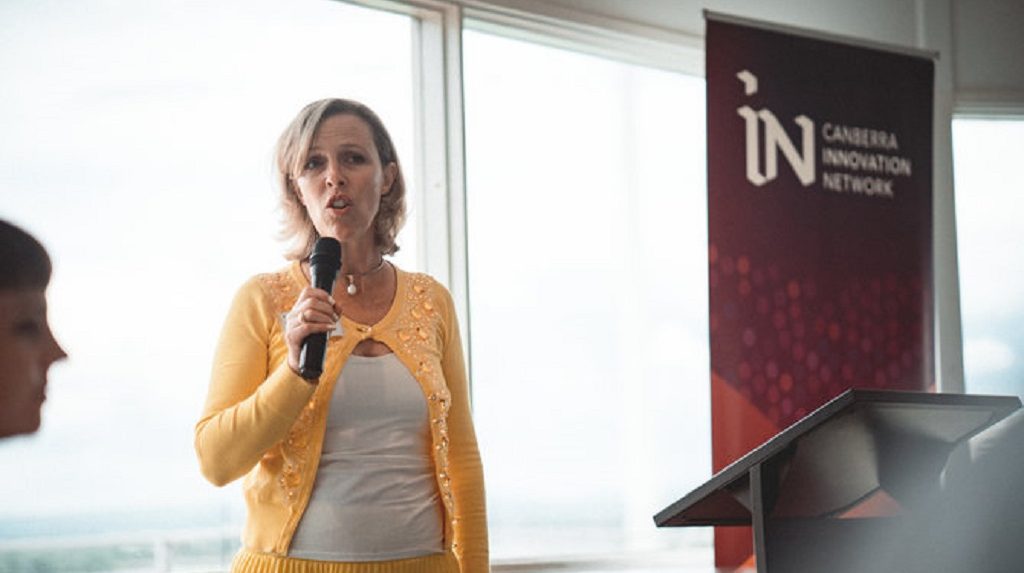- 21 September 2021
- Posted by: Canberra Innovation Network
- Categories: General News, Women in Innovation

In 2017 Tina McIntosh brought her big idea, Brain Changer, to the GRIFFIN Accelerator program, and she’s still the smiliest face you’ll find in the CBRIN Coworking space. We check in with her to see what business is like now.
How has your business changed and shifted in the last few years, since you first dreamed it up?
Originally we sold a stand-alone product that health professionals used with their patients. We found that the health professionals weren’t fully integrating it into their clinical practice, so we’ve created our own virtual clinic! We now have a team of 13 and we’re helping people all across Australia. Our customer is still the same, though – from the very beginning our “payer” has been insurers.
What challenges have you faced along the way?
The biggest challenge I’ve faced has been time. In the startup phase there’s a massive amount of work to do and few people to do it. Brain Changer has been four years in the making and I’ve only just put a team together in the last 2 years. I’ve managed by using Brain Changer to pace myself each day, which forces me to be realistic about my time and truly focus, as well reminding me to do the good stuff, like stopping for lunch and exercising. I’ve also hired passionate, talented people with different skill sets to me and I check in with my mentors regularly.
The other time crunch for me is that I’m a mum and a wife. My beautiful family needs me, too, and I’m acutely conscious that I’d be a big, fat hypocrite if I didn’t savour my time with them. There’s a new trend to move away from thinking about “work/life balance” and instead thinking about work and family in the context of lifestyle, which I’ve found really helpful. It’s given me permission to accept that some days the business needs me more and others it will be the kids that need more of my time. I think every parent can relate to this in these COVID times…
Tell us about the wild world of raising capital.
Capital raising is hugely time consuming if you’re going to do it right. Plan, plan, plan well in advance. Only raise as much as you need, but raise it well before you’re going to need it. And when you get investors, make sure you take them on the journey with you – share your triumphs AND your challenges. Our investors are backing the company because they can see the social and the economic impact we can have, which means we’ve got a strong alignment of values.
What’s next for Tina McIntosh?
I love learning about science and then experimenting with putting it into practice – and building things from those experiments! I’m currently building a Peer Mentor program to extend our offering, matching our clients with a person who has lived experience of persistent pain. I’m learning about the evidence base for what makes a “helping” relationship. It’s fascinating and actually applies to all relationships.
What advice would you like to share with young women who have innovative ideas they’d like to bring to life?
- Pick a problem that you’re passionate about, because this thing is going to take over your life and you’re also going to need a team around you. It’s your passion that will attract superstar colleagues.
- Join a startup community. No matter what issue you’re grappling with, there’s someone else who’s either walking in those same shoes or they’ve worn them before. Mentors are hugely supportive – they challenge you to experiment and learn. And there’s no problem they haven’t come across before – including the wicked problems. They won’t tell you what to do, they’ll help you navigate your options.
- Last, but absolutely not least, look after your health. It can be really stressful and the temptation can be there to power up with too much caffeine and push through long hours, and then power down at the end of the day with alcohol, but those are not sustainable strategies. It’s a better bet to make time for exercise and have a shut-down routine that gets you quality sleep.

